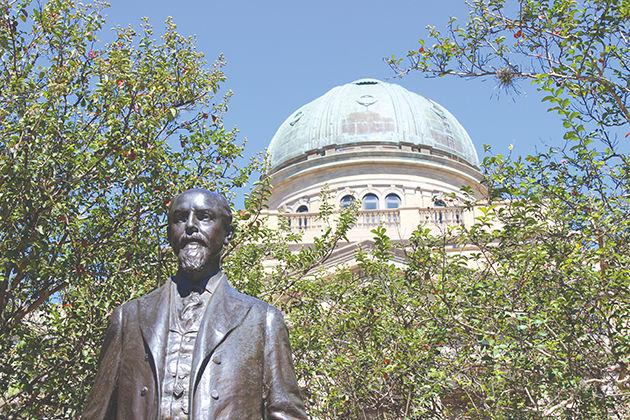College students are facing a struggle much larger than their next exam these days —they are battling the ever rising costs of higher education, too.
A week ago, the Texas Senate passed Senate Bill 19, which aims to limit increasing tuition at public universities and connect future increases to performance measures. Senator Charles Schwertner proposed an amendment that will limit future tuition increases to no more than one percent over the rate of inflation. The amendment passed with a 20-11 vote.
“This change will restore a measure of accountability to higher education and ensure that a college education remains affordable and accessible for all Texas students,” Schwertner said in a statement after the adoption of the bill. “As most people know, I have been a vocal advocate of slowing tuition growth for many years and was extremely pleased to see such strong support for this issue in the Texas Senate.”
According to a report by U.S. News and World Report, in-state tuition and fees at public universities grew by 296 percent in the 20 year span from 1995 to 2015. The average cost of tuition in 1995 was $2,475.76 compared to $9,803.03 in 2015.
“Capping tuition at something close to the rate of inflation means that tuition will have to stay pretty low at public universities,” said Jacob Arnett, A&M legislative relations commissioner and international affairs graduate student. “Capping tuition is good in the sense that [students] don’t have to pay more — but it does beg the question, how well is the university going to perform if it doesn’t get the proper funding?”
Texas A&M’s Student Senate passed a resolution at the last Senate meeting against the Texas Legislature Senate Bill 1, which decreased the funding for A&M students from $58 per semester credit hour to $50.
“The state of Texas essentially said that a student semester credit hour is worth less than any other student at any university in the state of Texas,” said Joseph Hood, government and public services senior and Speaker of the A&M Student Senate. “In combination with the environment of higher education right now, [SB 19] doesn’t get to the root of the problem. The root of the problem is that we have an education market that incentivises growth that costs a lot of money.”
Tuition and fees for out-of-state residents attending Texas A&M has increased 4.9 percent over the past five years and is projected to reach $32,985, annually by the 2019-2020 school year, according to a CollegeFactual report. Arnett said he is worried this capping of funds for universities could impact their revenue and the ability to raise money.
“It limits the university from raising tuition when it needs to,” Arnett said. “The downside of [the cap] is that the state does not look like it is going to be able to fund this particularly well. That could affect the university because we won’t have all the money for the programs that we need.”
The Texas State Legislature has proposed appropriating $17.5 million for the next two years for the University of Texas compared to $10.5 million for Texas A&M.
“The capping of tuition has a lot to do with the idea that the university can be funded without raising tuition but it doesn’t look like it will be like this in how the state budget is treating higher education,” Arnett said. “Capping tuition is pretty straight forward. It’s just a question of whether or not the university can get the funding to make that a reasonable option for students.”
Appointed Legislative Relations Commissioner and political science junior Brandon Gindt said while tuition regulation is positive, it must be across the board for each university in the state.
“As of now, Texas A&M is not being funded appropriately by the state because of the base funding levels that are decreased for A&M as opposed to other universities across the state of Texas,” Gindt said. “It’s important to students that the university is funded at that base level to remain competitive and provide that world-class education to students and be one of the leading universities across the state.”
Senate passes bill to limit increasing tuition rates
April 12, 2017
Photo by File
Texas Senate passed a bill to limit tuition increase for affordable higher education.
0
Donate to The Battalion
$2065
$5000
Contributed
Our Goal
Your donation will support the student journalists of Texas A&M University - College Station. Your contribution will allow us to purchase equipment and cover our annual website hosting costs, in addition to paying freelance staffers for their work, travel costs for coverage and more!
More to Discover










